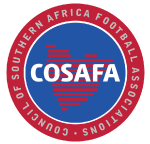
Analysis of COSAFA Castle Cup First Round teams
The 2017 COSAFA Castle Cup kicks-off on Sunday with the first round group phase that will supply two of the six quarterfinalists with the winner of each pool advancing to the next round.
We take a look at each of the eight teams in this stage of the competition and analyse their chances.
GROUP A
ANGOLA
Previous wins (3): 1999, 2001, 2004
Having brought young and inexperienced squads in recent editions, Angola have gone for a more beefed-up selection this year and will fancy their chances of a run deep into the competition.
Their recently appointed Brazilian coach Roberto Bianchi will be confident of bettering their showing in 2016, when their team made up of Under-20 players exited in the first round without scoring a goal or securing a point.
MALAWI
Previous wins (0): None
Malawi did not manage to secure many of their overseas-based stars, meaning Belgian coach Ronny van Geneugden has opted instead for youth as he looks to the future of the national team.
Malawi were undone by a 1-0 loss to Lesotho in their final group game last year, but that is their only defeat in their last six COSAFA Castle Cup matches, which includes a penalty shoot-out win over South Africa and a success against Zambia.
They can be a dangerous team.
MAURITIUS
Previous wins (0): None
It is fair to say that Mauritius have underachieved by their high standards in the COSAFA Castle Cup down the years, with just six wins their 26 matches to date.
They again disappointed in 2016, and since 2005 have three wins in 18 games.
Coach Joe Tshupula is back to try again in 2017 and he must build again after the disappointment of the side being knocked out of the African Nations Cup qualifiers by Comoros.
They are still in the hunt for the African Nations Championship though and that is now their focus after this competition.
TANZANIA
Previous wins (0): None
East African guest nation Tanzania appear for the third time at the COSAFA Castle Cup after previous visits in 1997 and 2015.
They have not excelled in those competitions and are in fact waiting for their first victory having played seven games so far.
Coach Salum Mayanga has also selected a new-look team boasting a number of home-based players.
GROUP B
MADAGASCAR
Previous wins (0): None
The Malagasy have had sterling performances in the COSAFA Castle Cup in the past, not least their thrilling run in the North West province in 2015.
They bring again some players with pedigree in the competition in the past, such as 2015 top-scorer Jeannot Vombola, and will certainly be an outsider to watch.
They are again led by experienced coach Auguste Raux.
MOZAMBIQUE
Previous wins (0): None
Mozambique have twice before come close to lifting the COSAFA Castle Cup having been beaten finalists in 2008 and more recently 2015.
They come with a much-changed squad in 2017 though as they look to rebuild the national team, and will be something of an unknown quantity.
Certainly Mozambican sides in the past have entertained with their flair and skill, let’s hope this one is the same.
SEYCHELLES
Previous wins (0): None
Seychelles are still getting to grips with the COSAFA Castle Cup as a competition having first played in the tournament in 2005.
Since then they have featured in 19 matches and won just one, though that was a thumping 7-0 success over Mauritius in 2008 which still serves as the biggest win in the history of the competition.
They have lost their last five games in a row, and bowed out of the 2016 competition with 4-0 and 5-0 losses to Swaziland and Zimbabwe respectively.
ZIMBABWE
Previous wins (4): 2000, 2003, 2005, 2009
Zimbabwe are traditionally one of the powerhouses of the COSAFA region and have a joint-record four titles in the flagship regional competition in the past.
That has not been the case in recent campaigns though after they bowed out in the first round in both 2015 and 2016.
Under the stewardship of Sunday Chidzambwa, who lifted the title with the team last they won it in 2009, they are hoping for better things and have selected a more powerful this campaign, which includes five players based in South Africa.

